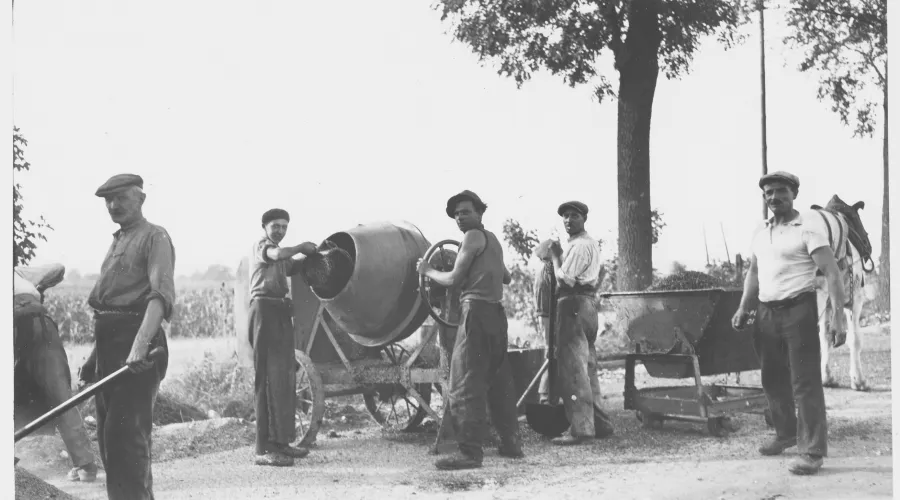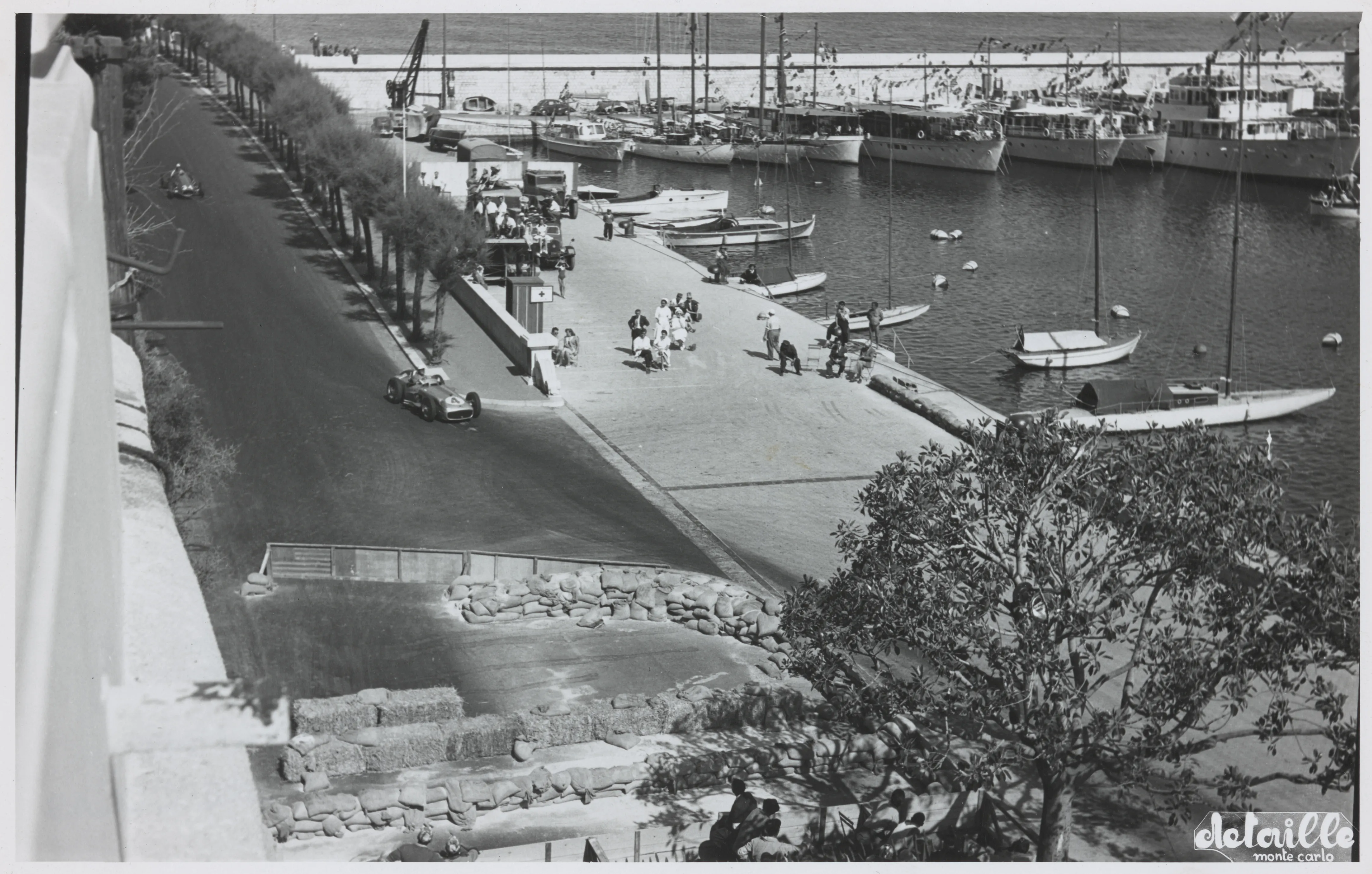
Creation of the Société Routière Colas
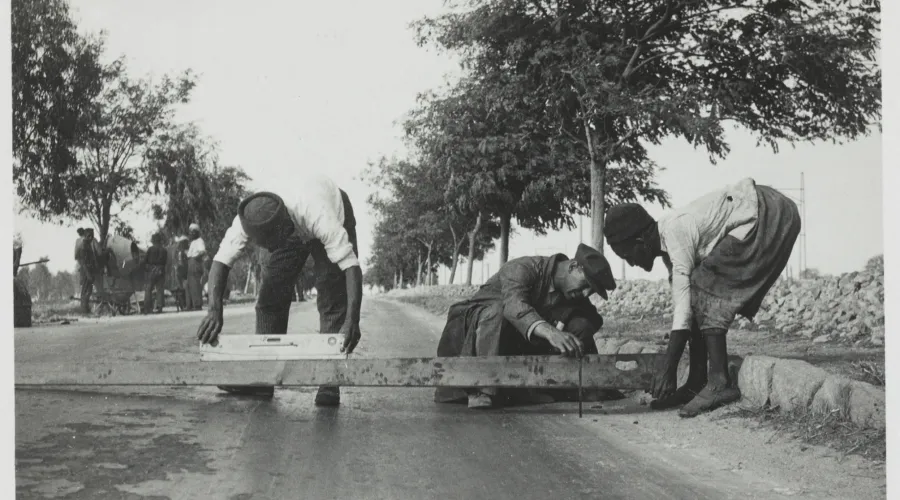
The patent, called “Cold Spray process”, was the first truly operational bitumen emulsion, developed by Hugh Allan Mackay and Georges Samuel Hay. In 1924, the name Cold Spray was replaced by "Colas" (abbreviation of Cold Asphalt). The company Société Générale d'Entreprise (SGE) acquired an exclusive license for the Cold Spray process on July 11, 1924. Alexandre Giros, CEO of SGE, created an emulsion department, and built the first Cold Spray emulsion plant in Rouen, France. SGE then opened up new production units and looked for new financial partners to exploit the patent. A merger with Royal Dutch Shell led to the creation, on May 16, 1929, of the Société Routière Colas (SRC).
The Société Routière Colas (SRC) performed its first road works in France
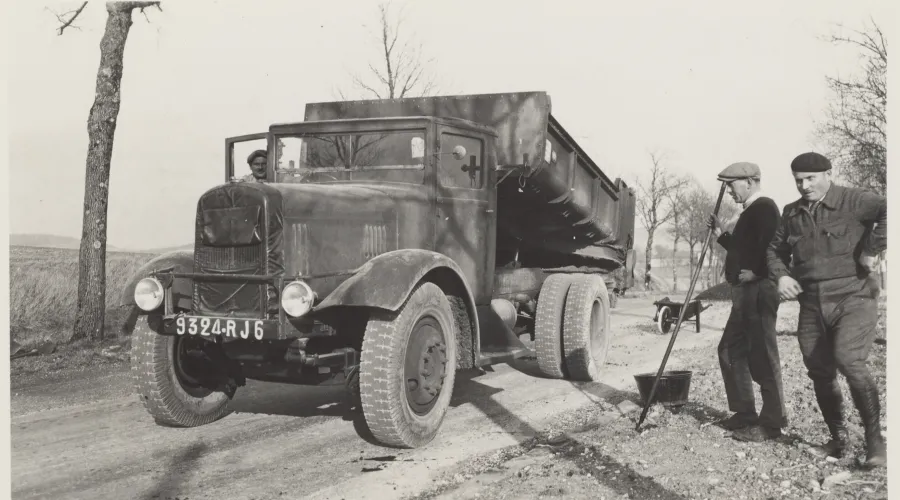
Between the two World Wars, France was faced with the urgent need to pave its vast road network, in order to prevent damage and fight the harmful effects of dust. Bitumen emulsion was the most competitive solution, compared to conventional tar processes used at that time: it saves money as the British miners’ strike in 1926 had made tar prices soar, time as the product could be applied even in rainy weather, and energy, too, because emulsion is a cold technique. Bitumen emulsion has it all!
SRC expanded in Africa and the Caribbean
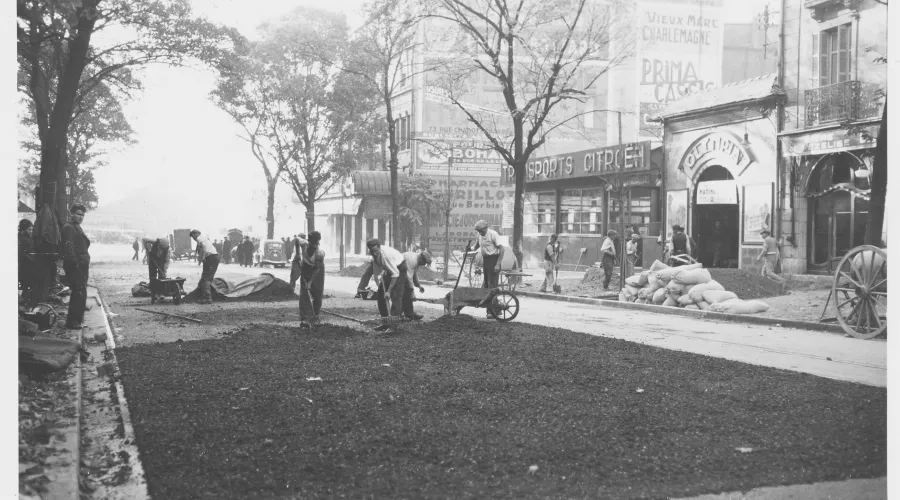
The 1930s were witness to the creation of Colas production units in Algeria, Morocco and Senegal. SRC also acquired the Société Industrielle Africaine de Produits Routiers in Morocco. These first footholds outside of France were a reflection of the company’s pioneering spirit, which is still one of Colas’ core values today.
Investing in new special products
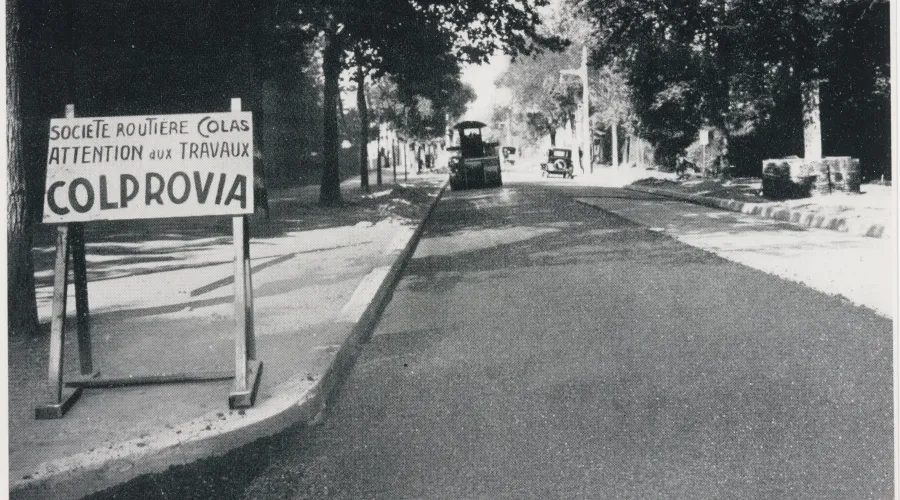
Colsol, Colasmix, Colprovia: under the leadership of its Chairman Georges Mathieu, SCR expanded its range of products with a focus on asphalt mixes and special products. The goal was to provide the most suitable products for specific needs (motorway racing circuits, frost resistance, stabilizing unpaved roads, etc.). The French road administration was highly interested in what Cold Asphalt could offer, creating a neologism for the process, "Colassage", to set it apart from tar-based techniques.
